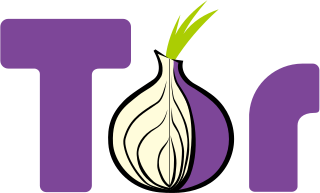
Mozilla Firefox is a free and open source web browser developed by the Mozilla Foundation and its subsidiary, the Mozilla Corporation. It uses the Gecko rendering engine to display web pages, which implements current and anticipated web standards. Firefox is available for Windows 10 and later versions of Windows, macOS, and Linux. Its unofficial ports are available for various Unix and Unix-like operating systems, including FreeBSD, OpenBSD, NetBSD, and other operating systems, such as reactOS. Firefox is also available for Android and iOS. However, as with all other iOS web browsers, the iOS version uses the WebKit layout engine instead of Gecko due to platform requirements. An optimized version is also available on the Amazon Fire TV as one of the two main browsers available with Amazon's Silk Browser.

Equifax Inc. is an American multinational consumer credit reporting agency headquartered in Atlanta, Georgia and is one of the three largest consumer credit reporting agencies, along with Experian and TransUnion. Equifax collects and aggregates information on over 800 million individual consumers and more than 88 million businesses worldwide. In addition to credit and demographic data and services to business, Equifax sells credit monitoring and fraud prevention services directly to consumers.
Zabasearch.com is a website that searches for and collates disparate information regarding United States residents, including names, current and past addresses, phone numbers, and birth years, and then permits the user to query other search engines with this information to retrieve additional data, such as satellite photos of addresses and criminal background checks.

The Mozilla Corporation is a wholly owned subsidiary of the Mozilla Foundation that coordinates and integrates the development of Internet-related applications such as the Firefox web browser, by a global community of open-source developers, some of whom are employed by the corporation itself. The corporation also distributes and promotes these products. Unlike the non-profit Mozilla Foundation, and the Mozilla open source project, founded by the now defunct Netscape Communications Corporation, the Mozilla Corporation is a taxable entity. The Mozilla Corporation reinvests all of its profits back into the Mozilla projects. The Mozilla Corporation's stated aim is to work towards the Mozilla Foundation's public benefit to "promote choice and innovation on the Internet."
A local shared object (LSO), commonly called a Flash cookie, is a piece of data that websites that use Adobe Flash may store on a user's computer. Local shared objects have been used by all versions of Flash Player since version 6.

WOT Services is the developer of MyWOT, an online reputation and Internet safety service which shows indicators of trust about existing websites. The confidence level is based both on user ratings and on third-party malware, phishing, scam and spam blacklists. The service also provides crowdsourced reviews, about to what extent websites are trustworthy, and respect user privacy, vendor reliability and child safety.

Private browsing is a feature in some web browsers that enhances user privacy. In this mode, the browser initiates a temporary session separate from its main session and user data. The browsing history is not recorded, and local data related to the session, like Cookies and Web cache, are deleted once the session ends. The primary purpose of these modes is to ensure that data and history from a specific browsing session do not remain on the device or get accessed by another user of the same device. In web development, it can be used to quickly test displaying pages as they appear to first-time visitors.
Do Not Track (DNT) is a deprecated non-standard HTTP header field designed to allow internet users to opt out of tracking by websites—which includes the collection of data regarding a user's activity across multiple distinct contexts, and the retention, use, or sharing of data derived from that activity outside the context in which it occurred.

Pale Moon is a free and open-source web browser licensed under the MPL-2.0 with an emphasis on customization. Its motto is "Your browser, Your way." There are official releases for Microsoft Windows, FreeBSD, macOS, and Linux.
Firefox was created by Dave Hyatt and Blake Ross as an experimental branch of the Mozilla browser, first released as Firefox 1.0 on November 9, 2004. Starting with version 5.0, a rapid release cycle was put into effect, resulting in a new major version release every six weeks. This was gradually accelerated further in late 2019, so that new major releases occur on four-week cycles starting in 2020.
Browser security is the application of Internet security to web browsers in order to protect networked data and computer systems from breaches of privacy or malware. Security exploits of browsers often use JavaScript, sometimes with cross-site scripting (XSS) with a secondary payload using Adobe Flash. Security exploits can also take advantage of vulnerabilities that are commonly exploited in all browsers.
Mozilla is a free software community founded in 1998 by members of Netscape. The Mozilla community uses, develops, publishes and supports Mozilla products, thereby promoting exclusively free software and open standards, with only minor exceptions. The community is supported institutionally by the non-profit Mozilla Foundation and its tax-paying subsidiary, the Mozilla Corporation.

The Tor Project, Inc. is a 501(c)(3) research-education nonprofit organization based in Winchester, Massachusetts. It is founded by computer scientists Roger Dingledine, Nick Mathewson, and five others. The Tor Project is primarily responsible for maintaining software for the Tor anonymity network.

Have I Been Pwned? is a website that allows Internet users to check whether their personal data has been compromised by data breaches. The site has been widely touted as a valuable resource for Internet users wishing to protect their own security and privacy. Have I Been Pwned? was created by security expert Troy Hunt on 4 December 2013.

Troy Adam Hunt is an Australian web security consultant known for public education and outreach on security topics. He created and operates Have I Been Pwned?, a data breach search website that allows users to see if their personal information has been compromised. He has also authored several popular security-related courses on Pluralsight, and regularly presents keynotes and workshops on security topics. He created ASafaWeb, a tool that formerly performed automated security analysis on ASP.NET websites.
NordVPN is a Lithuanian VPN service with applications for Microsoft Windows, macOS, Linux, Android, iOS, Android TV, and tvOS. Manual setup is available for wireless routers, NAS devices, and other platforms.
Between May and July 2017, American credit bureau Equifax was breached. Private records of 147.9 million Americans along with 15.2 million British citizens and about 19,000 Canadian citizens were compromised in the breach, making it one of the largest cybercrimes related to identity theft. Equifax discovered the breach end of July, but did not disclose it to the public until September 2017. In a settlement with the United States Federal Trade Commission, Equifax offered affected users settlement funds and free credit monitoring.

Mozilla VPN is an open-source virtual private network developed by Mozilla. It launched in beta as Firefox Private Network on September 10, 2019, and officially launched on July 15, 2020, as Mozilla VPN.









